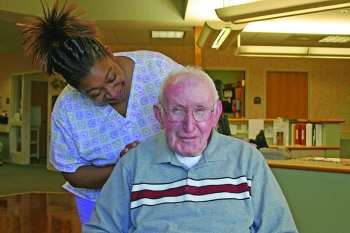Medicaid for Texas Seniors
Medicaid for Elderly and Disabled
Helping Texans Qualify for Medicaid.
Texas long-term care is expensive whether in a nursing home, assisted living facility, or home health care. Medicare coverage for long-term care is very limited, private health insurance policies generally do not cover long-term care, and few people have purchased private long-term care insurance policies.
For Texans needing long-term care, Medicaid is the most common source of funding. Medicaid is funded by both federal and state funds, and it provides health insurance to about 14% of Texans.
Medicaid Planning Specialists help clients structure their financial resources and prepare documentation to ensure the best possibility of being accepted into the Medicaid program. They create trusts, manage asset transfers, and convert countable assets into exempt assets to ensure eligibility and preserve a family's resources.
Medicaid provides health coverage to 7.2 million low-income seniors who are also enrolled in Medicare. According to the Federal government guidelines, a low-income senior is defined as any individual who has attained the age of 60 and has an income of less than $30,000 a year, which equates to about $2,450 a month, or about $80 a day. Medicaid also provides coverage to 4.8 million people with disabilities who are enrolled in Medicare.
Income & Asset Limits for Qualifying
How much in assets can you have and still qualify for Medicaid?
In order to be eligible for Medicaid, applicants must have no more than $2,000 in "countable" assets (the dollar figure may be slightly more, depending on the state). In addition, Medicaid also has strict asset transfer rules.
There are several different Medicaid long-term care programs for
which elderly Texans may be eligible. These programs have slightly
different eligibility requirements and benefits. Further
complicating eligibility are the facts that the criteria vary with
marital status and that Texas offers multiple pathways towards
eligibility.
1) Institutional / Nursing Home Medicaid
- is an
entitlement (anyone who is eligible will receive assistance) & is
provided only in nursing homes.
2) Medicaid Waivers / Home and
Community Based Services - Limited number of participants. Provided
at home, adult day care, adult foster care home, or in assisted
living. More about Medicaid waivers.
3) Regular Medicaid / Aged
Blind and Disabled - is an entitlement (persons who meet the
eligibility requirements are guaranteed program benefits) and is
provided at home or adult day care.
How do I protect my spouses assets from Medicaid?
Create a Funeral Trust - Certain irrevocable funeral trusts created for the Medicaid candidate and / or their spouse can enable a couple to reduce their countable assets by up to $30,000 (depending on their state of residence).
Can one spouse get Medicaid and the other not?
Medicaid assumes that both spouses of a married couple are financially responsible for one another. As a result, when Medicaid determines a spouse's eligibility for benefits, the assets of the husband or wife who isn't applying - known as "the community spouse" - are expected to contribute to the care of the other.
Related Articles:
- Medicaid Guidelines When Moving Out of State
- Medicaid Spousal Impoverishment Act
- Medicaid Spend Down / Look Back Period
- Types of Trusts Allowed Under Medicaid Rules
Disclaimer: Elder Options of Texas is not rendering any legal or professional advice. If legal advice is necessary the reader should consult an experienced elder law atttorney.
Home | About | Articles | Resources | Site Map | Privacy Policy
Elder Options of Texas
Copyright 2001-2024
All Rights Reserved
DISCLAIMER: Links to other websites or references to products, services or publications do not imply the endorsement or approval of such websites, products, services or publications by Elder Options of Texas. The determination of the need for senior care services and the choice of a facility is an extremely important decision. Please make your own independent investigation.


